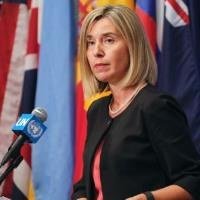(BRUSSELS) – The European Commission adopted Thursday a proposal on the signing of a Political Dialogue and Cooperation Agreement with Cuba, marking a turning point in EU-Cuba relations.
The Political Dialogue and Cooperation Agreement opens new avenues to support Cuba’s process of economic and social modernisation, to foster sustainable development, democracy and human rights, as well as to seek common solutions to global challenges.
At the same time, the High Representative Federica Mogherini transmitted a proposal to the Council to formally repeal the EU’s 1996 Common Position on Cuba.
“The bilateral Agreement between the EU and Cuba is the result of a fruitful and constructive work the EU and Cuba have done together, and marks the turning point in our relations”, said the EU’s foreign policy chief Federica Mogherini. “This contractual arrangement creates a clear common framework for intensified political dialogue, increased cooperation across a wide range of policy areas, and a precious platform for developing joint action on regional and international issues.”
The EU and Cuba concluded their negotiations for a bilateral Political Dialogue and Cooperation Agreement (PDCA) on 11 March 2016. The agreement includes three main chapters on political dialogue, cooperation and sector policy dialogue as well as trade and trade cooperation. The PDCA will contribute to enhancing EU-Cuba relations, accompanying the process of “updating” the Cuban economy and society, promoting dialogue and cooperation to foster sustainable development, democracy and human rights, and finding common solutions to global challenges.
Both proposals will now be reviewed by the Council, before their final adoption and the signature of the PDCA in coming months.
Once signed, the Agreement will become the instrument that defines the EU’s external relations with Cuba, superseding the 1996 Common Position. It offers a comprehensive framework which also complements and supports those developed by a number of EU Member States.


